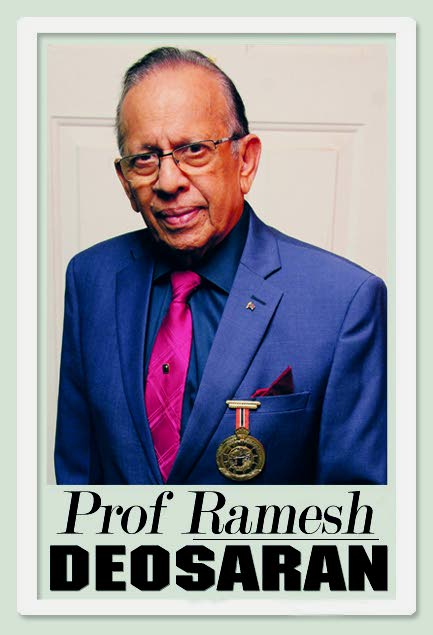Crime 'mess,' past and present

While promises have been repeatedly made over many years about “tackling crime,” citizens’ complaints keep growing.
The “tough talk” against criminals is not bearing fruit. Citizens keep hearing complaints from victims like Kent Moses, who barely escaped death while doing business in San Fernando. He said, “Nowhere safe, nowhere, nowhere. You don’t know how to live again.”
Elections come and go for the last 30 years, but have things changed?
If not properly tackled, crime gets worse from period to period. It’s not only about poverty, unemployment, parenting, etc. It’s also about ineffective policies and institutional deficiencies.
In the 1980s, crime and the fear of crime were rapidly increasing. My 2005 book Crime, Justice and Society contains 56 chapters on this country’s crime from 1971-1991. One chapter recalled when Herbert Atwell was minister of national security and Jim Rodriguez was police commissioner in 1987. I wrote: “This cannot be a country living in fear. We certainly cannot continue with a prosecution rate of only 12 per cent when it comes to reports of house burglaries and larceny.”
I added: “Do you know that while 46,252 crimes were reported in 1970, convictions were obtained in only 1,679 cases for that same year? And while 43,723 crimes were reported in 1984, convictions were obtained for only 1,041 cases for that same year?” In fact, as an independent senator then, I repeatedly pointed out the serious implications.
I warned the government: "While a large part of our officialdom (NAR government) is now buried in (political) quarrels over equality and appointments to state boards, etc, this matter of crime and the security of our citizens cannot be ignored as it apparently has been.” This 1987 chapter was titled Crime and a Nation in Fear. Similar story but worse in 2023.
I briefly recall these things to help inspire a better way. What is distracting us? Haven’t we learnt anything from the past? In 1987, then national security minister Selwyn Richardson, perceiving the crime situation as a “mess,” said, “The police service is a disaster” – some ten years after Randolph Burroughs. The lesson? The organisation shouldn’t be a one-man show.
In his Express column last week, Roy Mitchell captured the scene with this headline: Our darkest hour. He said: “It seems impossible to convince the leaders of TT that talking tough to criminal elements will get us nowhere. Those days are outdated. Today’s criminals are not afraid to die."
We are now in a “monstrous mess,” he stated.
A month ago, National Security Minister Fitzgerald Hinds, with good intentions, no doubt, said: “We will fight like hell against crime.”
Well, about 20 murders and home invasions have occurred since. And then from the very top of the police service to criminals: “We coming for you,” etc.
Why doesn’t the government instead take urgent steps and make some fundamental policing improvements? Referring to inefficiencies in municipal corporations, the PM said, “It is the system, mismanagement.”
Well, what about the police service? Why not make police service a professional service like the teaching service, for example, by having career officers who are professionally trained before applying?
The days for only CXC passes are long gone. That is for KFC. Policing today requires much more. Why hasn’t the proposal for a police inspectorate implemented as yet? This inspectorate woulddo the on-site field station-to-station, etc, to independently assess and quickly report to the executive for remedial action.
Arima Business Association president Christian Rampersad said: “Recreational businesses around the country were suffering as people were increasingly afraid to go out. People seeking recreation at home but they also do not feel safe there.” In fact, social media is loaded with complaints and fears of crime. When a frightened citizen, after being robbed, goes to report but sees one of the alleged “bandits” sitting in uniform behind a police desk, what else should we expect? Martin Wallace wondered, “This has to be a movie.”
Citizen Gregory Winter noted: “Almost every criminal has a TTPS or TTDF uniform in their hands.” Meanwhile, the Police Complaints Authority declared, “There is a sharp rise in complaints against the police, from 569 during 2021-2022 to 713 during 2022-2023.”
Elected officials should take active steps to prevent a further downward slide of crime, as that is a parliamentary responsibility. The Constitution states: “Parliament may make laws for the peace, order and good government of Trinidad and Tobago.” (Section 53)

Comments
"Crime ‘mess,’ past and present"